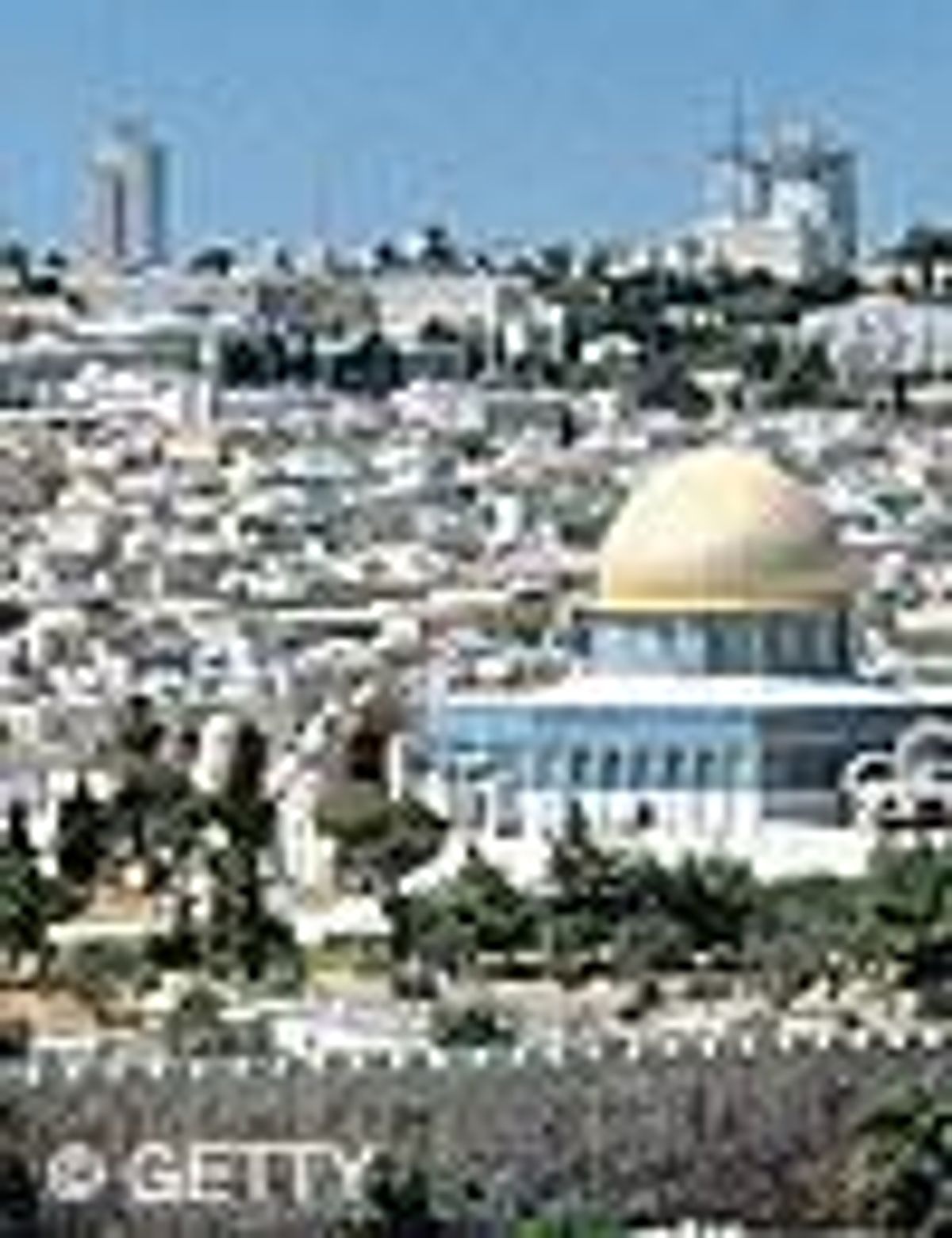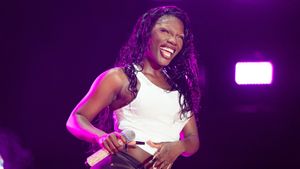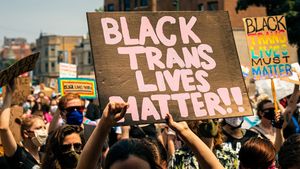A week before a
planned gay pride parade in Jerusalem, the city's
Orthodox Jews are warning of possible violence, and a
government minister said the march might have to be
scrapped to keep the peace in the holy city. Gay
rights activists fear the parade could end like it did last
year--with three marchers stabbed by an ultra-Orthodox
protester--and they accuse opponents of
assaulting democratic rights.
But many devout
Jews feel the parade has no place in Jerusalem, and they
want it stopped. ''This march is a ruthless assault on
traditional Jewish values and the sanctity of
Jerusalem,'' said Mina Fenton, an Orthodox member of
Jerusalem's city council who has led the fight against the
parade.
More than 100,000
people will attend a counterdemonstration on the day of
the march should it be allowed to go ahead, she said, and
violence is a possibility. ''When you throw a match,
you have to expect a fire,'' Fenton said.
Notice boards in
Jerusalem have been plastered with posters condemning
the event, and prominent rabbis have issued calls to stop
it. Shlomo Amar, one of Israel's two chief rabbis,
wrote that by ignoring religious laws prohibiting
homosexuality, the march ''threatens the existence of
the people of Israel in its land'' and is more destructive
than ''Nebuchadnezzar and Titus,'' referring to two
historical figures who sacked Jerusalem.
Ultra-Orthodox
protesters have already rioted in anticipation of the
march. In one disturbance Wednesday, three policemen were
hurt by stones, and 20 protesters were arrested.
Elena Canetti, a
parade organizer who heads Jerusalem's main gay rights
group, Jerusalem Open House, worried about the growing
friction. ''Their incitement might end in tragedy,''
she said.
Police are moving
ahead with preparations for the march, which will
require thousands of police to provide security, according
to police spokesman Micky Rosenfeld. But the police
have yet to issue a permit. Avi Dichter, the cabinet
minister in charge of the police, told Israel Radio on
Wednesday that no permit would be issued if securing the
march required so many officers that police would be
forced to abandon other crucial duties. ''If police
believe that they cannot guarantee public safety, the
march will not go ahead,'' Dichter said.
Gay activists had
originally planned to hold an international gay pride
parade in Jerusalem this summer but called it off because
of the war in Lebanon. They decided instead to
hold a local march November 10. The parade in
Jerusalem is expected to differ from such events elsewhere
in the world--even those held in the nearby,
more permissive city of Tel Aviv--where drag
shows and barely clothed marchers on floats are the norm.
The Jerusalem parades tend to be more sedate, with a few
thousand marchers.
This has not
helped calm the opposition, which includes hard-liners flown
in from abroad. One of them is Yehuda Levin, a rabbi from
New York City who represents an umbrella organization
of ultra-Orthodox clerics and who arrived to fight
against the parade. ''No one would dream of having this
march in Vatican City,'' he said.
Levin declined to
condemn potential violence against marchers. ''If you
came into my house and attacked my wife and daughters and
asked me if I intended to obey the law, you know what
the answer would be,'' Levin said.
Despite the anger
sparked by the march, organizers are refusing to back
down. One floor above the office of march opponent Mina
Fenton in Jerusalem's City Hall is the office of Saar
Nathaniel, a gay city council member. The city's gays
will push ahead, Nathaniel said, because backing down
would set a dangerous precedent for Israel's democracy,
proving that violence trumps freedom of speech. ''We
are putting a mirror in front of Israeli society and
the people of Jerusalem and asking a simple question:
Do you want to live in Tehran?'' Nathaniel said. (AP)



















































































